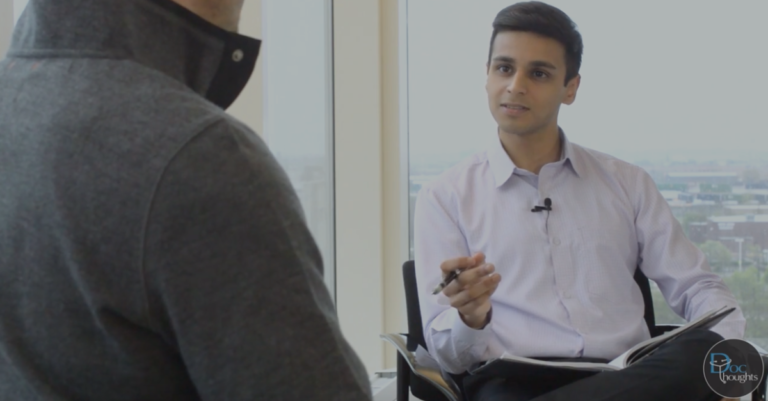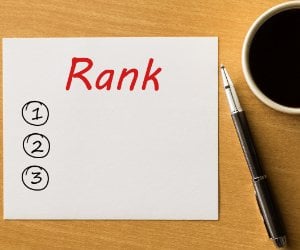
Finding a Job
You most likely believe the best time to start your medical job search is late autumn of the final year of training. That’s the standard advice, but it may not be the best for you. ... Read more
Robert Felberg
Updated June 26, 2022 by Robert Felberg

Medical
Ryan Haynes, PhD and Shiv Gaglani, MBA discuss how they went from anatomy partners to the founders of Osmosis, an advanced learning platform that helps medical & other health professional students succeed in classes, on ... Read more
Student Doctor Network
Updated March 7, 2019 by Student Doctor Network

Physician Q&A
Dr. Abeyna Jones is an occupational medicine registrar at King’s College Hospital and the Medical Director of Medic Footprints, a social enterprise for doctors and medical students promoting alternative careers and wellbeing. She is also ... Read more
Gloria Onwuneme
Updated June 26, 2022 by Gloria Onwuneme

Pre-Medical
Introduction & Background The CASPer (Computer-based Assessment for Sampling Personal Characteristics) test is a 90-minute online situational judgment test (SJT) created by McMaster University in Ontario, Canada. This computer-based test is taken in a non-proctored ... Read more
Kevyn To
Updated June 26, 2022 by Kevyn To

Pre-Medical
The Multiple Mini Interview (MMI) was first adopted by McMaster University in Ontario, Canada at the Michael G. DeGroote, School of Medicine back in the early 2000s. Initially, MMIs were used strictly during the admissions ... Read more
Kevyn To
Updated June 26, 2022 by Kevyn To

Healthcare News and Policy
What is DocThoughts? Give us an intro. DocThoughts is a media platform that interviews thought leaders in medicine and produces 5-minute films. DocThoughts gives the healthcare community an insider’s perspective on topics that you won’t ... Read more
Student Doctor Network
Updated June 26, 2022 by Student Doctor Network

Pre-Health
Ding. The ring of a bell emanates from invisible speakers overhead, and the pre-med waltz begins. Immediately, a hallway of med school hopefuls grab the laminated neon sheets hanging on the doors in front of ... Read more
Emanuel Grant
Updated June 26, 2022 by Emanuel Grant

Physician Q&A
As a child, José Cavazos, MD-PhD, was a self-proclaimed “book rat”. So, it makes sense that his career path was clear after reading a book. “I stumbled into the literary work—meaning the autobiography—of Don Santiago ... Read more
Suzanne Barston
Updated June 26, 2022 by Suzanne Barston

Pre-Medical
Recently, I rounded out a full decade as a professional admissions consultant, assisting candidates with residency and medical school applications. One thing I’ve noted over the last ten years is that, regrettably, many applicants repeat ... Read more
Michelle Finkel
Updated July 21, 2022 by Michelle Finkel

Physician Q&A
Dr. Khurram Mehtabdin and Dr. Omar Mirza are doctors by day, comic book creators by night. Their series, Zindan: The Last Ansaars, is the bestselling comic book in Pakistan through CFxComics. Since their 2014 debut, ... Read more
Christy Duan
Updated August 8, 2022 by Christy Duan

Residency and The Match
As you continue researching residency programs, applying, and interviewing with these programs, you’ll begin to learn more about what you’re looking for and which options exist. Pretty soon, you’ll need to turn your attention towards ... Read more
ExamGuru
Updated June 26, 2022 by ExamGuru

Pre-Health
Don’t miss Part I of this article, which covered how to prepare before the interview and general interview advice. COMMON INTERVIEW QUESTIONS 1. Tell me about yourself You should have prepared for this! Like I said, ... Read more
bluestreaks
Updated June 26, 2022 by bluestreaks

Pre-Health
I did 21 interviews. Don’t ask how much it cost because I don’t enjoy thinking about it! Basically, it was roughly the “Top 25” schools if you listen to US News. Since I gained a ... Read more
bluestreaks
Updated June 26, 2022 by bluestreaks

Finding a Job
Interviews are often stressful—even for those who have gone on countless interviews. The best way to reduce the stress is to be prepared. These tips will help you through the entire interviewing process and ensure ... Read more
Melissa Byington
Updated August 8, 2022 by Melissa Byington

Medical School
Two days before interviewing at the medical school I now attend, I couldn’t get out of bed. At the nadir of my eighth major depressive episode in eight years, I seriously considered whether I could ... Read more
Emily Forest
Updated August 11, 2025 by Emily Forest

Pre-Medical
One of the most important phases of the application process is your interview. It’s your chance to demonstrate your communication and interpersonal skills, judgment, maturity, and the qualities that are important for a future physician. ... Read more
AAMC Staff
Updated June 26, 2022 by AAMC Staff

Physician Q&A
Tell me about yourself – who you are, what you do, where you practice. I am an orthopedic surgeon in Hinsdale, Illinois. I’m with the same practice I started with after residency in 1983. Our ... Read more
Brent Schnipke
Updated June 26, 2022 by Brent Schnipke

Pre-Medical
We all know medical school interviews are important. But did you know, according to a survey of medical school admissions committees conducted by the American Association of Medical Colleges (AAMC), interviews are the most important ... Read more
Suzanne M. Miller, MD, FACEP
Updated June 26, 2022 by Suzanne M. Miller, MD, FACEP

Physician Q&A
Dr. Richard Friedman is a professor of clinical psychiatry and a psychopharmacology clinic director at Weill Cornell Medical College, where he focuses on mood and anxiety disorders. In addition to his research, Dr. Friedman has interests in ... Read more
Christy Duan
Updated June 26, 2022 by Christy Duan


















